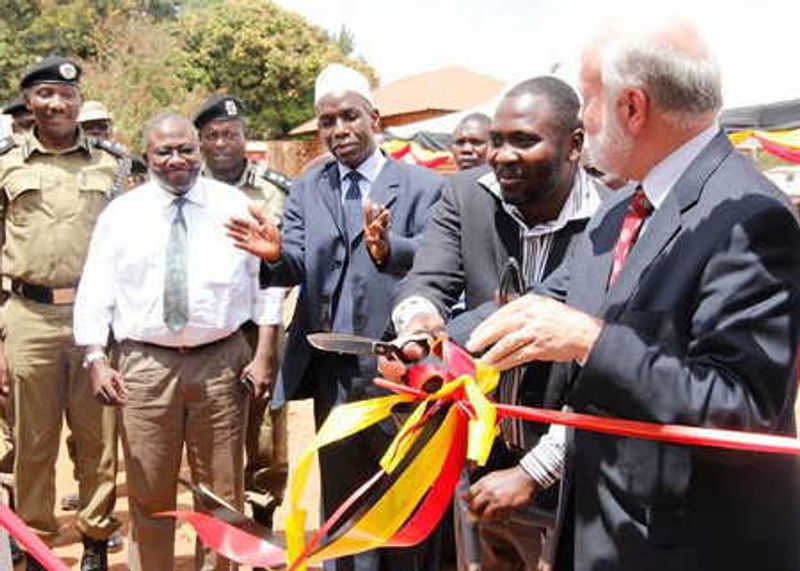

Ambassador DeLisi while officiating at the launch of the youth muslim centre in Mayuge recently
The US Ambassador to Uganda Scott DeLisi last week made a rallying call to the young people in Uganda to stop waiting for government and other development partners to change their lot but instead bring about change themselves.
Ambassador DeLisi said: “Do not wait for donors, or anyone else to come and chart your future for you. Know that the future is yours to shape. Be the positive change in your community. Lead the way now. Do not wait…”
He made the call while officiating at the launch of the U.S funded Uganda Muslim – American Skill Friendship Training Centre in Mayuge district last week, echoing the words of the late Indian leader Mahatma Gandhi who once said: “Be the change that you wish to see in the world.”
The call carried the sense of urgency that should trigger serious thought among young people on the need to change the social, economic and political future of Uganda, in which they are arguably the biggest stakeholders.
He urged the youth to create positive culture that sets the stage for achieving the shared vision of a peaceful, prosperous, healthy, democratic ?Uganda that he has often talked about.
One would argue that young people in Uganda are suffering from a dependency syndrome characterised with a tendency of begging and appealing to parents, the government, donors to alleviate their plight than facing the challenges by themselves.
Some observers argue that young people have failed to realise their potential because of a system of domination that has usurped their opportunities through years of political and economic suffocation.
By lifting term limits on political leadership or keeping civil servants beyond their retirement period, young people miss the opportunity to advance to positions of power and responsibility and consequently the ability to mainstream their challenges.
Proponents of this view argue that while unemployment threatens to undermine the potential of majority of young people, the NRM government which has been in power for the last 29 years, continues to pay lip service to it.
Ahmed Mukiibi, a mechanic in Makindye cited a sequel of programmes promised by the government such as the one meant to create common shades for artisans in Kampala, the youth fund, which have largely failed to materialise.
But others view Mukiibi’s complaints are sheer lamentations that only serve to frustrate and perpetuate the dependence syndrome rather than confront the devil head on.
If Ambassador DeLisi’s words are to mean anything in this respect, the youth in Uganda have a responsibility to participate in politics by choosing leaders who articulate and solve their problems rather hope that someone from another generation or continent can attend to their plight.
Ambassador DeLisi used numbers to demonstrate the sheer power and potential held by young people if they want to really bring about change.
He said: “In ?Uganda?, you represent over 80 percent of the population. Four out of every five people in Uganda are under the age of 30, and one half of the people of Uganda are under the age of fifteen! In short, you ARE the country. You ARE the continent. You have both the potential and the responsibility to drive positive change in your communities.”
If politics is a game of numbers, young people can decide not only to dominate positions of power in Uganda, but they can also dominate the economic agenda which would translate into a change in budget priorities that focuses on issues such as education that truly focuses on skills training, or closing gaps that often lead to billions of shillings being spent to buy political patronage.
Besides political self-liberation, some observers have argued that young people need to have a new mindset shift towards increased production by for example exploiting the country’s enormous untapped agricultural potential.
Felix Kyeyune, a resident of Konge in Makindye division in Kampala argued that most young people hesitate to return to their parents’ homes so that they can improve the farm, and instead stay in Kampala where they can make easy money from riding boda bodas, selling Chinese-made merchandise, peddling sex (tapes) and betting.
Kyeyune narrated a story of a degree-holding brother John (not real name) who rejected the opportunity of using a Ushs 2m grant to invest in an agribusiness venture in his home village, but instead opted to stay in Kampala and sell second-hand clothing.
But Kyeyune reveals that his brother’s less educated peers who chose to stay behind in the village, are doing much better simply because they are not scared to get their hands dirty.

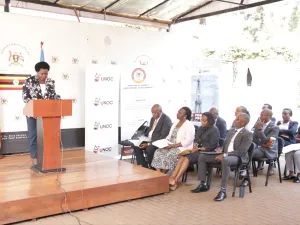
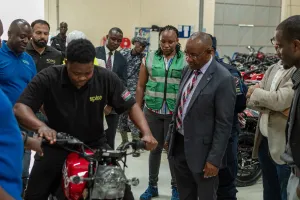
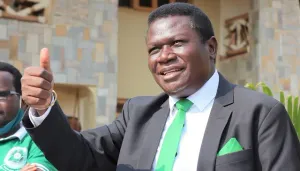
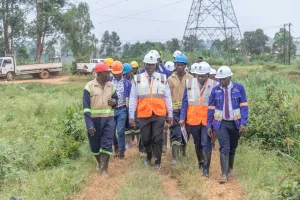
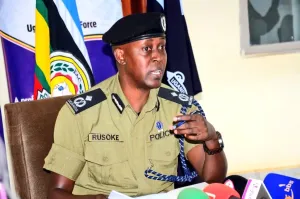






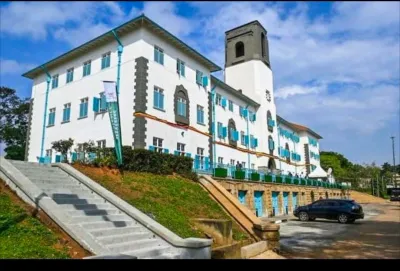
Sunrise Admin
Leave a Comment
Your email address will not be published.